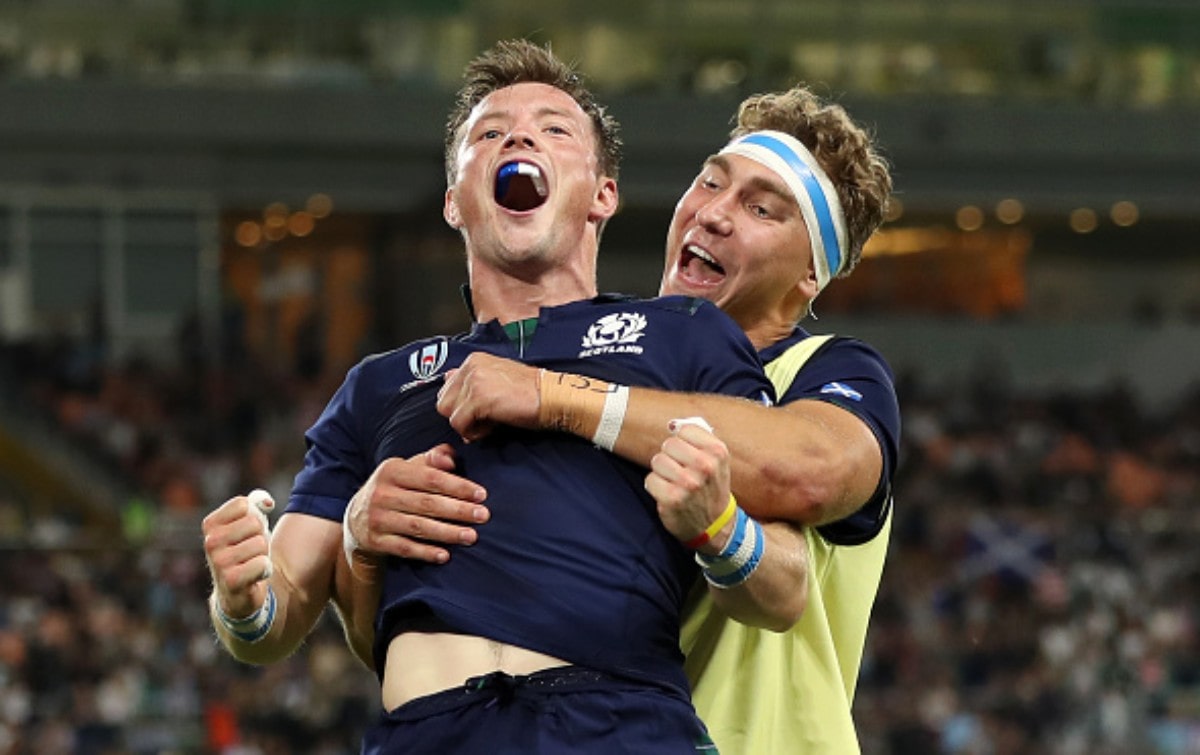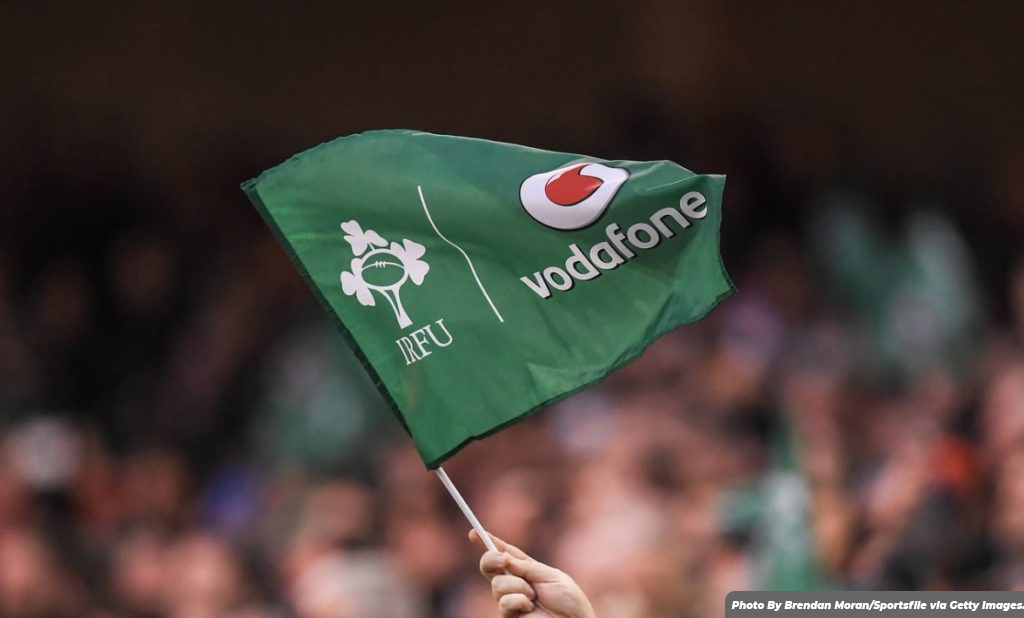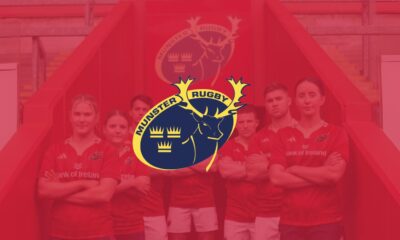6 Nations
Former Scotland Star Fearing Tough Six Nations Campaign
Former Scotland star Scott Hastings is fearing the worst for his country as they head into the Six Nations

Former Scotland centre Scott Hastings has predicted a tough Six Nations campaign for the national side as they go through a period of transition.
The 65-cap Scot believes that last year was expected to be the year where Scotland produced their best, but they failed and they are now trying to figure things out with a younger squad.
Some of those youngsters have starred for club and country including the likes of Jamie Ritchie, Darcy Graham and Magnus Bradbury, but Hastings is worried that they will lack the guidance of experienced players with veterans such as Greig Laidlaw, John Barclay and Tommy Seymour retiring after last year’s Rugby World Cup.
“I think Scotland are in for a tough season. There is a new era ahead. The team needs to try to put the World Cup to bed but they have lost three experienced heads in Laidlaw, Barclay and Seymour. There needs to be a new energy coming into the team and you can see Gregor is trying to do that with the six uncapped players he has included in his Six Nations squad. But has Gregor learned from the failure of last year? There was a lot of expectancy on the team but they imploded on numerous occasions,” he said while speaking to PA news agency.
With that in mind Hastings believes that other players in the squad need to step up including Finn Russell, who is now one of the most experienced players in the squad.
“The things we need to see is how does George Horne become that experienced player, how does Finn Russell strike that balance between exuberance, mercurial brilliance with also the need to be pinpoint accurate so he can deliver a winning performance for Scotland. In the forwards, how does Zander Fagerson turn himself into the number one tighthead in the Six Nations, how does Jonny Gray become the Alun Wyn Jones of Scottish rugby?” he added.
However, he doesn’t believe that Scotland will be the only side in transition this year with Ireland and Wales in a similar boat in his eyes. While he is backing the title to head to either England or France this season.
“I think Ireland and Wales are going through something a bit of a transitional period, similar to Scotland. England and France undoubtedly look like the teams to beat but I’m afraid Scotland are looking at fourth, fifth and sixth. I know that sounds harsh and when I played I certainly never went into a season thinking like that. But while I’m still a passionate Scotland supporter this time I’ve got to lead my head rule my heart. They have shown in glimpses that they can play well but you need more than that to compete for a Six Nations title,” he finished up with.
Scotland will want an improvement from last season, where they only managed a win against Italy and a draw with England in the Six Nations as well as exiting the World Cup in the pool stages.
However, they face a tough task this time around with their opening game against an Ireland side under new management and eager to impress their new coaches.
6 Nations
Munster Rugby Announce Contract Deals For Murray, Daly & Gleeson

Munster Rugby and the IRFU are pleased to confirm contract extensions for Conor Murray and Jack Daly with Brian Gleeson to be promoted from the Academy to the senior squad next season.
Murray and Daly have signed one-year extensions with Gleeson moving up to the senior squad on a two-year deal.
Gleeson is one of five Academy players moving up to the senior squad next year with Tony Butler, Ethan Coughlan, Mark Donnelly and Edwin Edogbo also signing two-year deals.
Conor Murray is one of the most decorated scrum-halfs in world rugby with 116 Ireland caps and three British & Irish Lions tours to his name.
A former St Munchin’s College student, the Garryowen man won his fifth 6 Nations title with Ireland last month and earned his second league title with Munster last season.
The 34-year-old has made 185 Munster appearances and scored 34 tries for the province to date and was named on World Rugby’s Team of the Decade in 2019.
25-year-old flanker Jack Daly came up through the ranks at Castleisland RFC and made his Munster debut against Zebre in 2020.
Daly joined the Academy in 2018, moved up to the senior squad in 2021 and plays his AIL rugby with Garryowen. A former Ireland U20 international, he made his Champions Cup debut against Toulouse in the quarter-final at the Aviva Stadium in 2022.

Try-scoring number 8 Brian Gleeson leads the charge for the Ireland Under-20s against France ©INPHO/Evan Treacy
20-year-old Gleeson moves up to the senior squad after just one year in the Academy that has seen him score one try in nine senior appearances.
Currently out of action with an ankle injury, he had already made three Champions Cup appearances before turning 20.
The powerful back-row forward was a Grand Slam winner with the Ireland U20s last year. plays his AIL rugby with Garryowen and came up through the ranks at Thurles RFC and Rockwell College.
Images & Content from Irish Rugby & Images © Inpho Photography
6 Nations
Farrell Names Ireland Match Day Squad To Face Scotland In Dublin

Head Coach Andy Farrell has named his Ireland Match Day Squad for Saturday’s Guinness Men’s Six Nations clash against Scotland at Aviva Stadium (Kick-off 4.45pm).
Ireland – currently sitting top of the Six Nations table heading into Super Saturday – can clinch back-to-back Championship titles with victory over Scotland in Dublin.
Farrell has named an unchanged starting XV for the Round 5 clash, as Hugo Keenan, Calvin Nash and James Lowe continue in the Ireland back three. Robbie Henshaw and Bundee Aki are once again selected in midfield, with Jack Crowley and Jamison Gibson-Park the starting half-backs.
Andrew Porter, Dan Sheehan and Tadhg Furlong pack down in the front row, with Joe McCarthy partnering Tadhg Beirne – who is set to win his 50th Test cap for Ireland – in the engine room.
Captain Peter O’Mahony is at blindside flanker, Josh van der Flier is at openside and Caelan Doris completes the starting XV at number eight.
The Ireland Coaching Team have opted for a 5-3 split on the bench, with Rónan Kelleher, Cian Healy, Finlay Bealham, Ryan Baird and Jack Conan providing the reinforcements up front, and Conor Murray, Harry Byrne and the fit-again Garry Ringrose the backline options.

Saturday’s match is live on Virgin Media One and ITV, with live radio coverage available on RTE Radio 1.
Ireland Team & Replacements (v Scotland, Guinness Men’s Six Nations, Saturday, March 16, 4.45pm)
15. Hugo Keenan (UCD/Leinster)(39)
14. Calvin Nash (Young Munster/Munster)(5)
13. Robbie Henshaw (Buccaneers/Leinster)(71)
12. Bundee Aki (Galwegians/Connacht)(55)
11. James Lowe (Leinster)(30)
10. Jack Crowley (Cork Constitution/Munster)(13)
9. Jamison Gibson-Park (Leinster)(34)
1. Andrew Porter (UCD/Leinster)(63)
2. Dan Sheehan (Lansdowne/Leinster)(25)
3. Tadhg Furlong (Clontarf/Leinster)(75)
4. Joe McCarthy (Dublin University/Leinster)(9)
5. Tadhg Beirne (Lansdowne/Munster)(49)
6. Peter O’Mahony (Cork Constitution/Munster)(captain)(104)
7. Josh van der Flier (UCD/Leinster)(61)
8. Caelan Doris (St Mary’s College/Leinster)(40)
Replacements:
16. Rónan Kelleher (Lansdowne/Leinster)(30)
17. Cian Healy (Clontarf/Leinster)(128)
18. Finlay Bealham (Buccaneers/Connacht)(39)
19. Ryan Baird (Dublin University/Leinster)(19)
20. Jack Conan (Old Belvedere/Leinster)(45)
21. Conor Murray (Garryowen/Munster)(115)
22. Harry Byrne (UCD/Leinster)(3)
23. Garry Ringrose (UCD/Leinster)(57).
Images & Content from Irish Rugby & Images © Inpho Photography
6 Nations
Farrell Names Ireland Team To Face England At Twickenham

Head Coach Andy Farrell has named his Ireland Match Day Squad for Saturday’s Guinness Men’s Six Nations clash against England at Twickenham (Kick-off 4.45pm).
Peter O’Mahony captains Ireland for the Round 4 visit to London, with Hugo Keenan returning to the starting XV after recovering from injury.
Keenan joins Calvin Nash and James Lowe in the Ireland back three, with Bundee Aki and Robbie Henshaw continuing their midfield partnership.
Jack Crowley and Jamison Gibson-Park are retained as the half-back pairing.
In the pack, Andrew Porter, Dan Sheehan and Tadhg Furlong are in the front row, with Joe McCarthy and Tadhg Beirne named in the engine room. Captain O’Mahony is at blindside flanker, Josh van der Flier is at openside and Caelan Doris completes the starting XV at number eight.
The Ireland Coaching Team have selected a 6-2 split on the bench, as Ronan Kelleher, Cian Healy, Finlay Bealham, Iain Henderson, Ryan Baird and Jack Conan provide the reinforcements in the pack.
Backs Conor Murray and Ciaran Frawley complete Ireland’s Match Day 23 to face England.
Saturday’s match is live on RTÉ2 and ITV.
Ireland:
15. Hugo Keenan (UCD/Leinster)(38)
14. Calvin Nash (Young Munster/Munster)(4)
13. Robbie Henshaw (Buccaneers/Leinster)(70)
12. Bundee Aki (Galwegians/Connacht)(54)
11. James Lowe (Leinster)(29)
10. Jack Crowley (Cork Constitution/Munster)(12)
9. Jamison Gibson-Park (Leinster)(33)
1. Andrew Porter (UCD/Leinster)(62)
2. Dan Sheehan (Lansdowne/Leinster)(24)
3. Tadhg Furlong (Clontarf/Leinster)(74)
4. Joe McCarthy (Dublin University/Leinster)(8)
5. Tadhg Beirne (Lansdowne/Munster)(48)
6. Peter O’Mahony (Cork Constitution/Munster)(captain)(103)
7. Josh van der Flier (UCD/Leinster)(60)
8. Caelan Doris (St Mary’s College/Leinster)(39)
Replacements:
16. Ronan Kelleher (Lansdowne/Leinster)(29)
17. Cian Healy (Clontarf/Leinster)(127)
18. Finlay Bealham (Buccaneers/Connacht)(38)
19. Iain Henderson (Academy/Ulster)(80)
20. Ryan Baird (Dublin University/Leinster)(18)
21. Jack Conan (Old Belvedere/Leinster)(44)
22. Conor Murray (Garryowen/Munster)(114)
23. Ciaran Frawley (UCD/Leinster)(3)
Images & Content from Irish Rugby & Images © Inpho Photography













